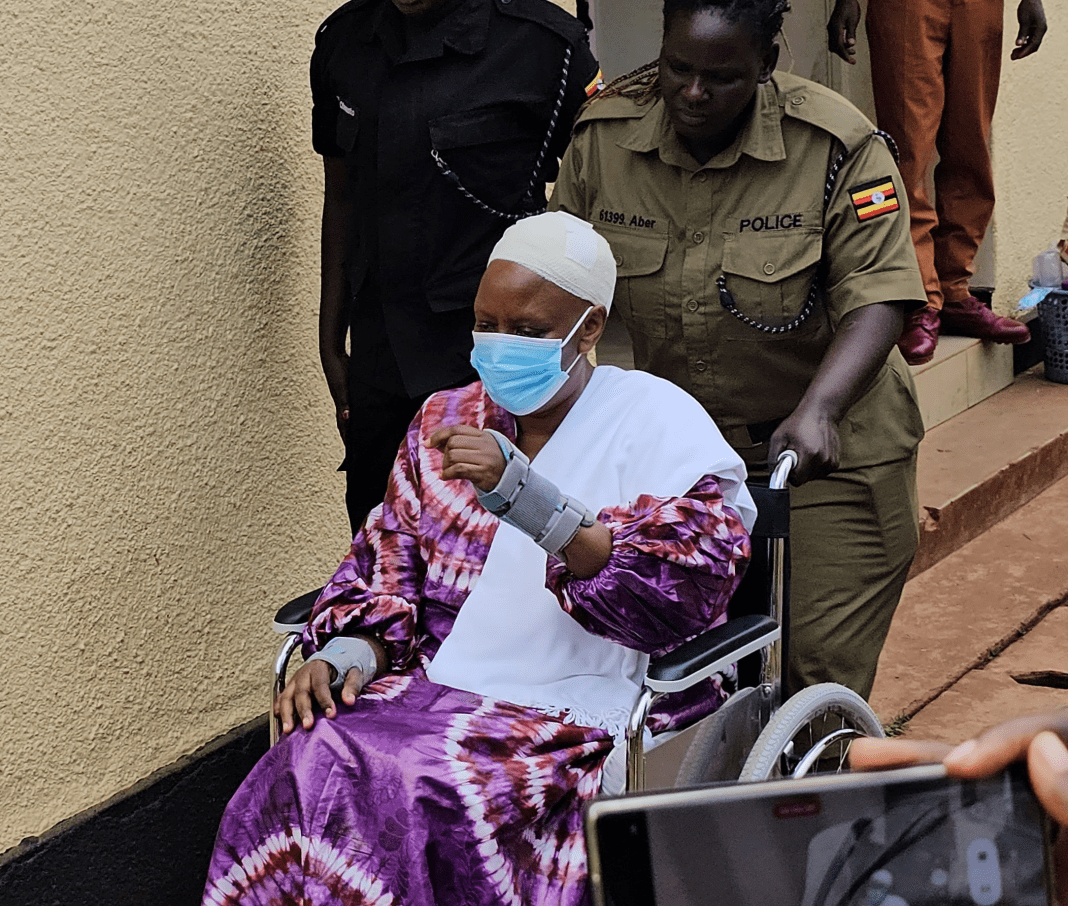Blair Atwebembeire.
OPINION | In the dimly lit courtroom, Molly Katanga sat in a wheelchair, her head heavily bandaged, and her hands confined in medical splints. The accused widow of the late Henry Katanga, a prominent businessman, was now facing murder charges, alleged to have shot her husband with malice aforethought. The day of reckoning had finally come after an arrest warrant was issued in response to the prosecution’s request.
As I looked at the images of her frailty, the question that loomed in my mind was not just about the alleged crime but about the compassion within the legal system itself. As His Worship Erias Kakooza remanded Molly to Luzira Prison, her defense counsel persistently pleaded for leniency, urging the court to grant her access to medical attention and contact with her family. They painted a picture of a woman who had undergone various medical surgeries to treat injuries sustained during a scuffle with her late husband. The juxtaposition of the accused in a state of physical vulnerability and the severity of the charges brought forth a profound query about the compassionate nature of our justice system.
As I pondered, the intricacies of striking a balance between justice and compassion reverberated through my mind. Could the wheels of justice have been momentarily paused to allow the suspect to recuperate and then appear in court? This isn’t an assertion that she should escape accountability; rather, it’s an exploration of the timing of the legal process.
The law, in its essence, presumes a person innocent until proven guilty. Yet, the images of Molly, battered and broken, raised thoughts about whether the handling of suspects is reflective of this presumption. Should the legal system consider the circumstances of a case and exercise compassion where needed? How can we in the pursuit of justice, strike a delicate balance between the interests of the victims and the presumption of innocence? The grieving hearts of the victims and their kin demand retribution, a thirst for justice that resonates with everyone that is human. Yet, the legal system must not forget its duty to ensure a fair trial, where the accused is innocent until proven guilty
The delicate balance between the interests of the victims and the presumption of innocence is a tightrope that the legal system navigates. Balancing the scales, the legal practitioners, often portrayed as intelligent and logical, find themselves in a conundrum. As I reflect on this matter, memories resurface from the past—instances where disturbing images of individuals, claiming to be victims of torture by law enforcement during investigations, come to mind. This prompts me to delve deeper into the question of whether the presumption of innocence, often considered a foundational principle on paper, holds true in practice.
In the midst of this narrative, one must not forget that, in its purest form, justice seeks the truth. Amidst the tumultuous legal drama, one truth must prevail: justice, unwavering and impartial, must be the ultimate goal. Compassion should not be wielded at the expense of justice, nor should justice be dispensed callously, ignoring the human toll it exacts. The query is whether compassion, a quality not often associated with legal proceedings, could co-exist with the pursuit of justice.
The notion that our legal processes should be compassionate is not a call for complacency or bias but a plea to align the pursuit of justice with a humane approach. The view calls for introspection, inviting us to critically assess whether the legal process, in its current state, truly upholds the delicate balance between compassion and accountability.
Blair Atwebembeire is an Advocate of the High Court of Uganda. E-mail: blair.advocates@gmail.com















